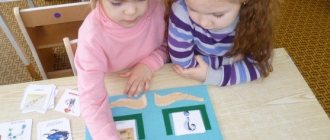Definition 1
Speech therapy is a branch of pedagogy that studies the speech development of children and develops methods and directions for correctional work aimed at eliminating speech defects.
Speech therapy refers to the complex of scientific knowledge of special pedagogy. She is engaged in a detailed study of various speech pathologies, their influence on the overall development of the personality of a student of a certain age, the characteristics of the manifestation of speech deviations and the possibilities of functioning of the cognitive and other spheres of the personality in the presence of a particular speech disorder. Speech therapy develops correctional education technologies aimed at creating conditions for the full learning and comprehensive development of a child with a particular speech pathology.
Are you an expert in this subject area? We invite you to become the author of the Directory Working Conditions
Speech therapy has ancient roots. It developed over the centuries, gradually entering pedagogical practice and subsequently established itself as scientific pedagogical knowledge.
Historical information about the formation and development of domestic speech therapy
The history of the formation and development of the system of speech therapy assistance in Russia is not long and is distinguished by its originality. The formation of the prerequisites for the emergence of the system occurs in the pre-revolutionary period, its formation corresponds to the period of social upheaval, and the legislative and organizational design of the system occurs in the Soviet period. N.N. Malofeev in his study identifies three periods of formation and development of the system of speech therapy assistance in Russia.
1st period - second quarter of the 19th century. - first quarter of the 20th century. - “the period of prehistory and formation of prerequisites.” In 1838, the first work of the domestic author X. Laguzen was published - the monograph “On Stuttering”.
In the second half of the 19th century. from the cycle of medical sciences, a special field of knowledge is distinguished - logopathology, works of authors exploring almost all forms of speech pathology appear (A. Kozhevnikov, 1874; V.M. Tarkovsky, 1867; I.A. Sikorsky, 1889; I.K. Khmelevsky, 1897; M.B. Bogdanov-Berezovsky, 1909 , etc.).
At the end of the 19th century. - early 20th century in the depths of speech pathology, speech therapy emerges as a science that integrates knowledge at the intersection of three sciences - medicine, psychology and pedagogy. In 1896 , for the first time in Russia, courses were organized for stuttering students of the Siberian Cadet Corps according to the stuttering correction system developed by I.A. Sikorsky. Departments are being opened at medical institutes to research speech therapy issues. Thus, in 1908 the Department of Deaf Education and Speech Therapy was opened , headed by D.V. Feldberg.
The experience of organizing the education and upbringing of children with developmental disabilities served as a scientific and practical basis for creating a system of speech therapy assistance in Russia in the future. Thus, in deaf pedagogy, many methodological and organizational components of the speech therapy service have been formed. However, the speech pathology rehabilitation programs proposed by domestic scientists did not find legislative and financial support from the state at that time. The legislative system of speech therapy assistance was formalized only after the revolution.
In the spring of 1918, short-term speech therapy courses, mandatory for all teachers and doctors of preschool institutions in Moscow, were organized. In Petrograd, at the Psychoneurological Academy, the Otophonetic Institute was created under the leadership of D.F. Feldberg. In July 1920 , at the First All-Russian Congress on the fight against childhood defectiveness, crime and homelessness, a decision was made: to consider the training of personnel for special institutions as the most important state task, and to carry out this training in higher educational institutions.
Two higher educational institutions were created in Moscow: the State Institute of Defective Children of the People's Commissariat of Health (September 1920) and the Pedagogical Institute of Children's Defects of the People's Commissariat for Education (October 1921), which in 1930 were transformed into the defectology faculty of the Moscow State Pedagogical Institute. In 1925, the Department of Deaf Education and Speech Therapy was opened at the defectology department of the 2nd Moscow State University in Moscow, headed by Professor F.D. Pay. The order of the People's Commissariat of Education of the RSFSR dated June 8, 1931 ordered the introduction of universal primary education for speech therapists, the organization of special courses, groups and schools for them.
2nd period - early 30s - late 60s. — the period of formation and development of the system of speech therapy assistance, the main directions of which were: organization of speech therapy work in a auxiliary school, specialized assistance to children with stuttering, hearing and speech impairments; training of speech therapists, etc.
One of the first directions in the development of school speech therapy was the organization of speech therapy work in a auxiliary school. In 1936 in Leningrad, 79% of needy mentally retarded children were covered by speech therapy assistance.
In 1930, on the initiative of V.A. Gilyarovsky at the neuropsychiatric hospital named after. Solovyov, the first speech therapy group for stuttering preschoolers was opened, and then a speech therapy semi-inpatient facility.
In 1933, the first specialized clinic for patients with hearing and speech impairments was opened in Moscow at the hearing and speech training and treatment plant.
The discovery on the initiative of L.S. was important for the formation and development of domestic speech therapy. Vygotsky at the Experimental Defectology Institute in 1933, a speech clinic headed by R.E. Levin, where the theoretical aspects of speech therapy were developed and practical work was carried out on the diagnosis, treatment and training of children with speech disorders.
In the 1946-47 academic year at the defectology faculty of Moscow State Pedagogical Institute. IN AND. Lenin, the first speech therapy department in the university system was opened. Cooperation between two departments begins: education and health care within the framework of an integrated medical-psychological-pedagogical approach to overcoming speech disorders.
Since January 1, 1949, 120 speech therapy centers were opened at secondary schools in large cities, consisting of 1 speech therapist teacher with a higher defectology education. In the early 50s. schools for children with severe speech impairments are appearing. In 1970, an order of the Ministry of Education approved the “Model Regulations on Preschool Institutions and Groups for Children with Speech Impairments.”
3rd period - the end of the 60s - the 90s - a period of further development and improvement of the system of speech therapy assistance.
Since 1972, the “Nomenclature of preschool institutions for abnormal children of the system of the USSR Ministry of Education” has been approved - kindergartens and groups for children with hearing, speech, vision, intelligence, and musculoskeletal disorders. Since 1975, speech therapy groups have been opened by law at general kindergartens and specialized kindergartens and nurseries. In 1976, the “Regulations on the formation of speech therapy centers in secondary schools” were adopted.
In the 1977-1978 academic year, a speech therapy department was opened at the defectology faculty of Leningrad State Pedagogical Institute named after. A.I. Herzen. Currently, about 20 higher educational institutions in the country train defectologists (correctional teachers), where students receive an additional specialty - speech therapy.
In the 90s, a new, 4th period in the development of the system of speech therapy assistance, a period of transformation of existing organizational forms and the search for new ones that are adequate to the needs of society at the present stage of its development.
The current stage of development of our country is characterized by radical political transformations, democratization of society, rethinking by the state and society of human rights, the rights of the child, and the disabled. Private charitable initiatives and church patronage are allowed, and the rights of parents of children with developmental disabilities are expanded. In today's incredibly difficult economic conditions, the problems of families with children with developmental disabilities have become aggravated and complicated, especially in connection with the transition to independent financing of many educational institutions.
Designation of speech defects
Education as a social phenomenon is a purposeful, organized, systematic transfer of experience in social relations, the results of the development of social consciousness, a culture of productive work, knowledge on active transformation and environmental protection by elders and assimilation by the younger generation. This is the social meaning of education.
Education ensures the continuity of generations, the full functioning of society and an adequate level of personal development. This is its objective purpose in society and psychological significance.
The main mechanisms for mastering content in the learning process are purposefully organized in special forms of interaction, joint activities of children and adults, students and teachers, and their meaningful cognitive communication.
Learning depends on specific historical conditions. Different eras and civilizations leave their mark on its organization: in the selection of material content for different social groups, in the choice of methods of indoctrination and manipulation of consciousness. This is the pedagogical meaning of teaching.
In pedagogy, learning is understood as a specially organized, purposeful and controlled process of interaction between teachers and students, the purpose of which is the acquisition of knowledge, skills, abilities, the formation of a worldview, the development of spiritual strength and potential of students, and the consolidation of abilities for self-education.
The basis of learning is knowledge, skills and abilities, which on the part of the teacher are the first (basic) components of the content, and on the part of the students - the products of assimilation.
Knowledge is a set of information, concepts and ideas about objects and phenomena of objective reality acquired by the student.
Skills are learned, automatic motor, sensory, and mental actions that are performed accurately, easily, and quickly with low mental stress and ensure the effectiveness of human performance.
Skills are a person’s ability to creatively apply knowledge and skills to achieve the desired result in constantly changing practice conditions, which is achieved in the learning process.
By transferring this or that knowledge to students, the teacher always gives them the necessary orientation and, as if by the way, but in fact very thoroughly, forms the most important ideological, social, ideological, moral and many other attitudes. Therefore, the training is educational in nature. Likewise, we must recognize that all learning always contains elements of schooling. By teaching, we educate, by educating, we teach. The terms “training” and “education” overlap to some extent.
The essence of education is more fully and clearly manifested in its functions, the most important of which is the formation of knowledge, skills and abilities in people. During its implementation, a person forms and consolidates the basic knowledge, skills and abilities necessary for all life situations and activities.
Another function of education is the formation of a person’s worldview. Worldview is formed in children and adults objectively, gradually, in the process of generalizing knowledge that allows us to evaluate the world around us.
Superstitious remnants in understanding the causes of speech defects and methods for eliminating them
Pedagogical research methods are ways of obtaining scientific information to establish regular connections, relationships, dependencies and form scientific theories.
Methods of pedagogical research are divided into theoretical and empirical (practical).
Theoretical research methods make it possible to clarify, expand and systematize scientific facts, explain and predict phenomena, increase the reliability of the results obtained, move from abstract to concrete knowledge, establish relationships between various concepts and hypotheses, and highlight the most important and secondary ones among them.
Theoretical research methods include: Analysis, synthesis, induction, deduction, comparison, abstraction, generalization, specification and modeling.
Analysis is the mental decomposition of the whole being studied into its component parts, the identification of individual signs and properties of the phenomenon.
The same phenomenon under study can be analyzed from different angles. A comprehensive analysis of qualities and properties allows for a deeper understanding of them.
Synthesis is a mental combination of signs and properties of a phenomenon into a common (abstract) whole.
Synthesis is the unification of meanings. If we simply summarize the signs of a phenomenon, then there is no logical system between them, but only a chaotic accumulation of individual connections.
Analysis and synthesis are closely related in any scientific research.
Abstraction is the mental separation of a property or feature of an object from its other features, properties, relationships.
Concretization is a mental reconstruction, recreation of an object based on previously identified abstractions (by its logical nature, a process opposite to abstraction).
Comparison - finding similarities and differences between the phenomena under consideration.
In order to compare certain phenomena, it is necessary to identify known features in them and determine how they are represented in the objects under consideration. Undoubtedly, analysis will always be an integral part of this process, since in determining differences in phenomena it is necessary to identify measurable characteristics. Since comparison involves identifying certain relationships between characteristics, it is obvious that synthesis will also be used during the comparison.
Generalization is the identification of common features in phenomena, i.e. summing up the research results.
When using the comparison method, common features of phenomena are identified, which make it possible to combine them into one semantic group. The more significant features of phenomena have been compared, the more convincing the generalization is.
Modeling is the study of processes and phenomena using their real or ideal models.
Induction and deduction are logical methods for summarizing empirically obtained data. The inductive method involves the movement of thought from specific judgments to a general conclusion, the deductive method - from a general judgment to a specific conclusion.
Empirical (practical) research methods include: Methods of collecting and accumulating information (observation, interviews, surveys, tests, etc.); Methods of control and measurement (scaling, sections, tests); Data processing methods (mathematical, statistical, graphical, tabular); Assessment methods (self-assessment, rating, pedagogical consultation); Methods for introducing research results into teaching practice (experiment, experimental learning, large-scale implementation), etc.
Observation is a research method aimed at obtaining the necessary information directly through the senses (a targeted, systematic study of a specific pedagogical phenomenon). Along with self-observation, observation is the most important research method.
Accumulation of linguistic and pedagogical ideas about the development of correct speech in children
One of the definitions of psychology says: psychology is a science whose object of study is the laws of formation, functioning and development of the human psyche.
An attempt to understand the word “psyche” encounters a terminological barrier. In fact, psychology takes its name from the Greek words “psyche” (soul) and “logos” (study). So psychology is the study of the soul? This has been considered for many centuries in a row. And today we hear and say everywhere: “the soul rejoices,” “the soul hurts,” “the soul is out of place,” “a soulful person,” etc. So “soul” or “psyche”?
Scripture says that the soul is given to man by God for temporary use. In this case, it is something absolutely incomprehensible, unattainable for a mortal person. In everyday psychology, where knowledge about the inner world of a person is drawn from everyday life, these words - “soul” and “psyche” - have become synonymous. In scientific psychology, where knowledge is obtained through theoretical and experimental research, the word “psyche” is used.
Since childhood we have been saying: “I want”, “I think”, “I feel”, “I imagine”. We think about the strengths and weaknesses of his memory and will, his abilities and character, temperament and intelligence. Each of us from an early age is able to “feel” the emotional state of another person, distinguish the mood of other people, the characteristics of their character. This understanding formed the basis of (everyday) psychology, which generalizes and condenses the experience of many generations. His knowledge is very approximate, vague, and sometimes simply erroneous. It is rather an illusion of knowledge, which, unfortunately, replaces real education.
The difference between scientific psychology and everyday psychology is that it knows the answer to the question “how”, on the basis of which conclusions and conclusions are drawn. Scientific psychology is based on rigorous, researched and repeatedly verified facts, which are logically systematized and explained in special scientific theories.
Thus, psychology is a field of knowledge about the inner (mental) world of man.
The study of the essence and laws of development of the human psyche is the subject of scientific psychology.
A specific feature of a person is the presence of a double life: external, directly observable, and internal, hidden from view. In the latter, he thinks, plans, conducts an internal dialogue with himself. Externally observable life is given to us in the form of behavior.
The subjective world of a person is organized in a complex way; it is limitless in space and includes all dimensions of time: past, present and future. Only a person can look into tomorrow, dream, live in the future, build a perspective for his own life. It was this feature that F. Nietzsche had in mind when he aphoristically said that man is an animal that can promise.
Modern psychology considers the psyche as a property of highly organized matter, which consists in the active reflection of the objective world by the subject. This is not a thing or an object, but a process. It reaches the highest, most complete stage of human development.
The human psyche includes everything that he feels, perceives, senses, thinks about, remembers, all his habits, his personality, but also how, by what means he does this. This allows us to anticipate what awaits us.
For example, the psyche allows us to prepare in advance for a difficult event. Therefore, if you do not want to study for exams, it is very useful to imagine your future emotional state. How will we feel if we cannot speak a word during the exam. How will we feel when we are asked about the exam results. This “emotional anticipation” usually forces you to overcome your laziness and start studying.





